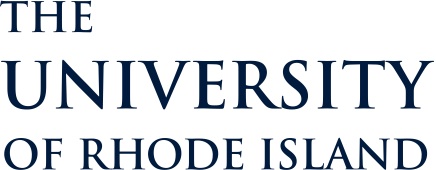Newswise — An arm of the National Institutes of Health has awarded the University of Rhode Island a $16.5 million, five-year grant to continue the University's work as a catalyst for biomedical research in the state. It is one of the largest one-time grants in the University's history.
Awarded to Zahir Shaikh, a professor of biomedical and pharmaceutical sciences in URI's College of Pharmacy, the grant from NIH's National Center for Research Resources, is the second major grant from that agency awarded to URI since 2001. URI completed the third year of its $8 million Biomedical Research Infrastructure Network (BRIN) grant, which resulted in collaborations with Brown University, Rhode Island College, Providence College, Salve Regina University, Roger Williams University, and Bryant University. Shaikh will be assisted in administering the new grant by Robert Rodgers, also a professor in the same department.
With these two grants, URI's College of Pharmacy has brought close to $25 million in federal funding for biomedical research to Rhode Island in the last three years.
The BRIN grant marked the first time in Rhode Island history that researchers from URI and the other colleges in the state collaborated in such a comprehensive manner. Shaikh said it was the successful collaboration during the first grant and specific plans proposed for the next five years that led to a successful review for the new one.
The new grant cements those relationships and focuses researchers' attention on URI's strength in molecular toxicology. This discipline examines the adverse effects of natural and synthetic chemicals, as well as radiation, on man and his environment. These agents may compromise the normal functions of such systems as reproductive, nervous and cardiovascular, and organs such as lung, liver and kidney.
"Environmental contamination is an important issue in every state," including ours," Shaikh said. "Many chronic diseases, such as cancer, may have their origins in the environment."
URI President Robert L. Carothers said Rhode Islanders should be proud of the leadership role URI is taking in such critical research and the commitment of the state's other colleges to the project. "At URI, we have been supporting collaborative, multi-disciplinary learning for several years because we know that success in research is often a result of those with different perspectives and approaches coming together to solve critical problems. Such an approach has been highly successful at URI and now it is paying dividends statewide."
U.S. Senator Lincoln Chafee, a strong supporter of federal funding for important URI initiatives, sees such research as a keystone to the state's economic development. "I am firmly convinced that a primary growth industry for Rhode Island will be biomedical research," Chafee said. "The NIH has recognized the outstanding work that URI is doing in bringing together the vast resources of the talented men and women at our colleges and universities with this major grant. It is my hope that our state will become a national leader in this field and these types of grants are certainly planting the seeds for future success."
Donald E. Letendre, dean of URI's College of Pharmacy agreed with the senator and URI president.
"Dr. Shaikh and his colleagues at URI and the other Rhode Island colleges have now been responsible for bringing close to $25 million in less than three years to Rhode Island for the study of some of our most important and vexing health problems," Letendre said. "These two grants illustrate the kind of broad impact the College of Pharmacy has on health care and biomedical research in Rhode Island and beyond."
The new project, funded through the federal IDeA Networks of Biomedical Research Excellence (INBRE) program, is called the Rhode Island Network for Molecular Toxicology. As a result of the grant, the University has approved a center for toxicology studies, which will have at its disposal the $2 million core research instrumentation laboratory established with funds from the previous grant. This facility is open to all biomedical researchers in the state, and the participating institutions will contribute funds for the operation and maintenance of the facility " yet another example of the collaboration between the institutions towards a common goal.
In addition, half of the grant total will fund three projects at each of the smaller four-year colleges—RIC, PC, Roger Williams and Salve Regina. (See related release.) "Their faculty are going to be well-funded," Shaikh added. "The expectation is that this funding will allow greater undergraduate student training opportunities in biomedical research and also help the faculty members become more competitive in obtaining their own research grants."
One project at Brown will be funded through the grant and four will be funded at URI. In addition, senior URI and Brown faculty will serve as mentors for the junior faculty.
"A total of 17 junior faculty members will be supported by the new grant," Shaikh said. "It includes new faculty positions at the six participating schools. In terms of our research capacity, it may bring up to nine new researchers to the state during its first year," Shaikh said. As these faculty become successful, additional researchers will be recruited to take their place.
Besides undergraduates, the research teams will train graduate students and postdoctoral fellows and employ laboratory technicians to help with their projects. There is also a mechanism for supporting pilot research projects to promote participation by researchers who are not regular members of the network.
"The INBRE grant makes training of undergraduate students a priority so that they will be prepared for graduate school and careers in the biotechnology and pharmaceutical industries," Shaikh said. "Last year, the program faculty involved over 100 undergraduate and graduate students in their projects."
The funding also makes recruitment of ethnic minorities to biomedical research a priority.
